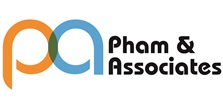
IP Counsel Facing 'Patent Troll' Litigation Crisis
Nearly three quarters of the chief IP counsel polled for Consero Group's Nearly three quarters of the chief IP counsel polled for Consero Group's “2013 Chief IP Counsel Data Survey” said they are either currently in litigation with a “patent troll” or anticipate they will be in the next 12 months. The rise of PAEs is well documented, and Boston University researchers have said patent trolling places a $29 billion strain on the economy each year. Congress currently has at least six bills pending that aim to stem patent troll activity in a variety of ways. And the White House has also weighed in, taking several executive actions that could reduce the efficacy of patent trolling. “Virtually all the participants seemed to think they were fighting their patent troll battles on their own—without help form the U.S. government,” Mandell said. “In-house counsel are not satisfied with what Congress has done, and they’re giving the government a failing grade.” While 100 percent of the attorneys said governments of emerging markets are not doing enough to protect foreign companies against counterfeiting, 51 percent said emerging-market governments are providing more protection now than they did a year ago.
The survey, released today by executive events organizer Consero Group, found that 74 percent of the intellectual property counsel surveyed are litigating against patent assertion entities (PAEs), also known as “patent trolls,” or are bracing to do so within the next year. In addition, 100 percent of respondents, all of whom represent Fortune 1000 companies, said they expect patent litigation to either increase or remain steady in that time.
“We have something of a crisis in the U.S. where patent trolls are concerned,” Consero founder and CEO Paul Mandell told CorpCounsel.com. “This is a major source of anxiety and expense for in-house IP counsel.”
Nevertheless, the Consero survey found that 91 percent of the chief IP counsel polled said the U.S. government is not taking the necessary actions to protect corporations against patent trolls. And more than half (51 percent) said government protections against copyright and trademark infringement are also insufficient.
Other survey findings include:
(Source: www.law.com)


